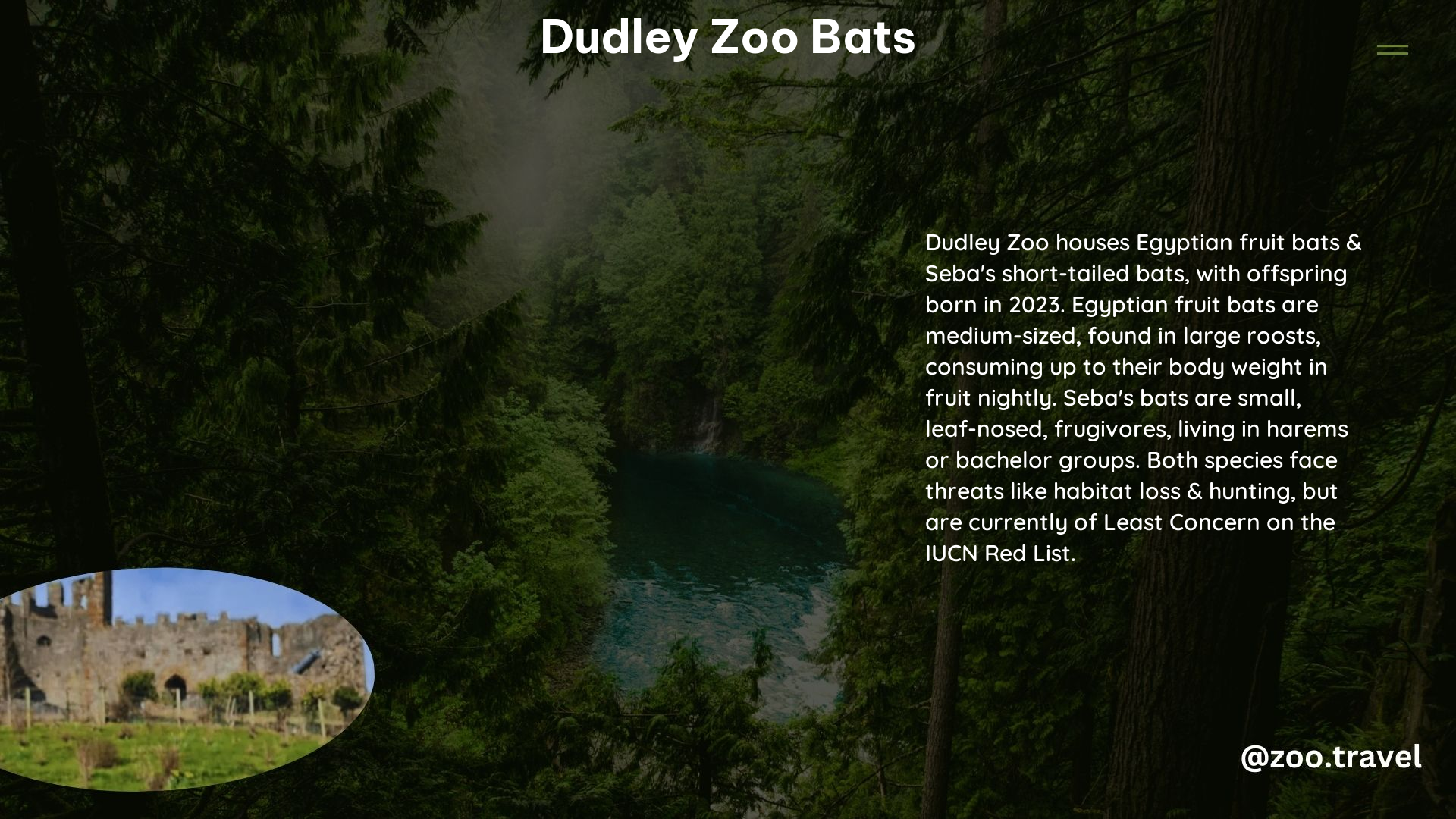Dudley Zoo is home to two captivating species of bats: the Egyptian fruit bat and Seba’s short-tailed bat. These unique creatures play vital roles in their respective ecosystems and offer visitors a chance to learn about the importance of bat conservation.
Egyptian Fruit Bats: Voracious Fruit Lovers
The Egyptian fruit bat is a medium-sized bat with a body length of up to 15 cm and a wingspan of 60 cm. These bats can weigh between 120-150g and have the remarkable ability to live up to 22 years in captivity. Found throughout Africa and the Middle East, including Pakistan and North India, Egyptian fruit bats thrive in forest habitats with ample fruit production and nearby caves that serve as their roosts.
One of the most fascinating traits of the Egyptian fruit bat is their voracious appetite for fruit. These bats can consume their own body weight in fruit in just one night, making them crucial pollinators and seed dispersers in their native ecosystems. Interestingly, these bats are also known to be teetotal, avoiding alcohol produced by fermenting fruit.
Seba’s Short-tailed Bats: Pollinators and Seed Dispersers

Seba’s short-tailed bats are small, gregarious, and social leaf-nosed bats found in Central and South America, as far as Paraguay and South Brazil. With a wingspan of 30-35 cm and a weight of around 15g, these bats are known for their large, lance-shaped noses and are primarily frugivores, feeding on the fruits of low-lying shrubs.
Seba’s short-tailed bats play an important ecological role as pollinators and seed dispersers in their native forests, which are typically moist evergreen or dry deciduous habitats below 1,000m in elevation. These bats can live for 12-17 years, making them valuable contributors to the health and diversity of their ecosystems.
Conservation and Monitoring Project
In addition to the bats in their collection, Dudley Zoo is actively involved in a conservation and monitoring project led by the University of Wolverhampton. This project has uncovered rare species of bats in a disused limestone mine within the zoo’s grounds, known as Big Ben Cavern. Remarkably, ten species of bat have been recorded roosting in this area, making it one of the most populated bat habitats in the region.
The monitoring process involves the use of specialized “harp traps” and “mist nets” to capture and record the different bat species and their sex, providing valuable data for conservation efforts.
Bat Walk & Talk: Engaging Visitors in Bat Conservation
Dudley Zoo offers a unique Bat Walk & Talk event, where visitors can learn about native bat species, conservation efforts, and ways they can contribute to bat protection at home. The event includes a 30-minute informative talk about local bat species and their importance, followed by a guided tour around the zoo using bat detectors to listen for some of the 7 bat species living wild on the site.
The Bat Walk & Talk event is scheduled for Saturday, 20th July 2024, and tickets are available for £8 per adult and £5 per child (8-15 years). This interactive experience allows visitors to engage with the zoo’s bat conservation initiatives and gain a deeper appreciation for these fascinating creatures.
In conclusion, Dudley Zoo is home to two remarkable species of bats, the Egyptian fruit bat and Seba’s short-tailed bat, each with their own unique characteristics and ecological significance. Through their conservation and monitoring project, as well as the Bat Walk & Talk event, Dudley Zoo is actively contributing to the understanding and protection of these vital members of the animal kingdom.
